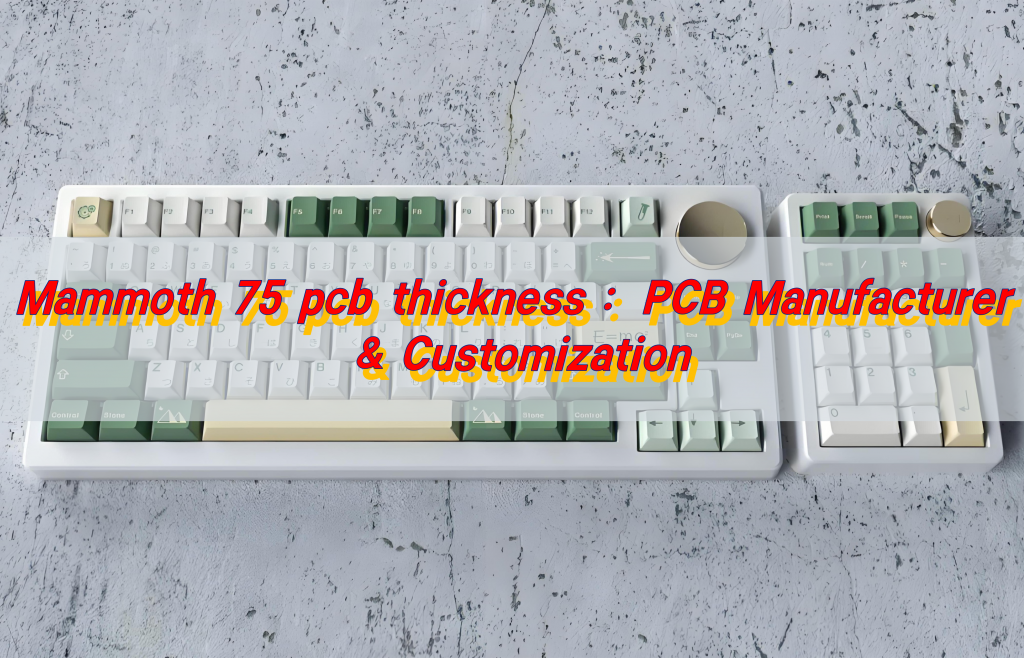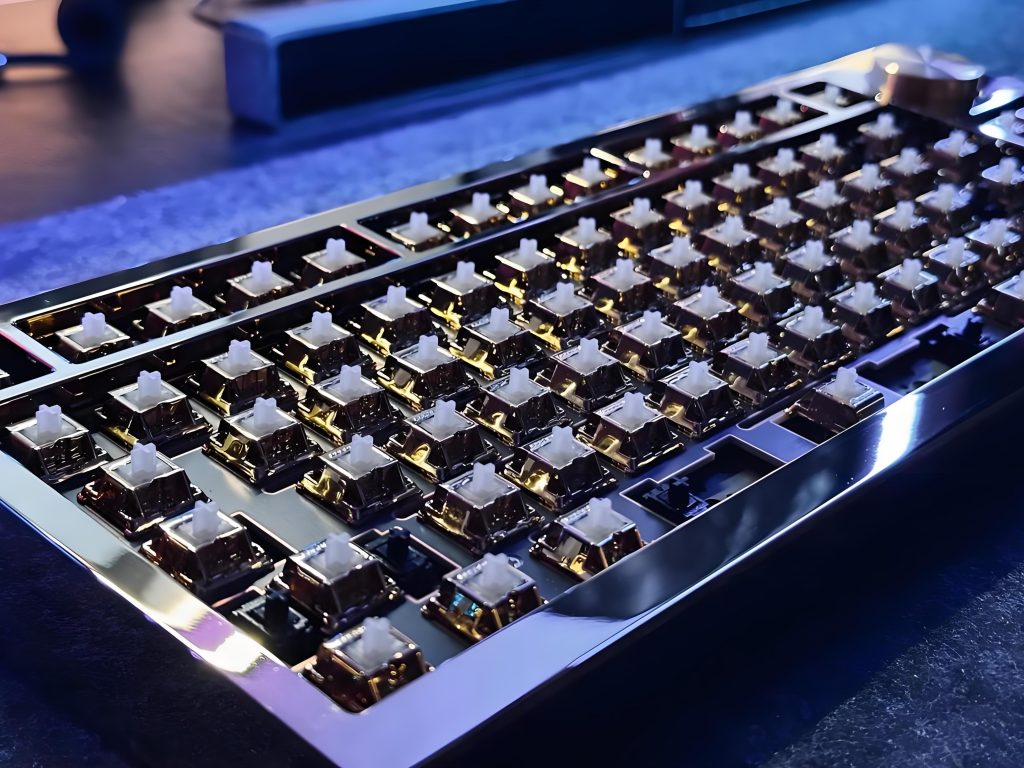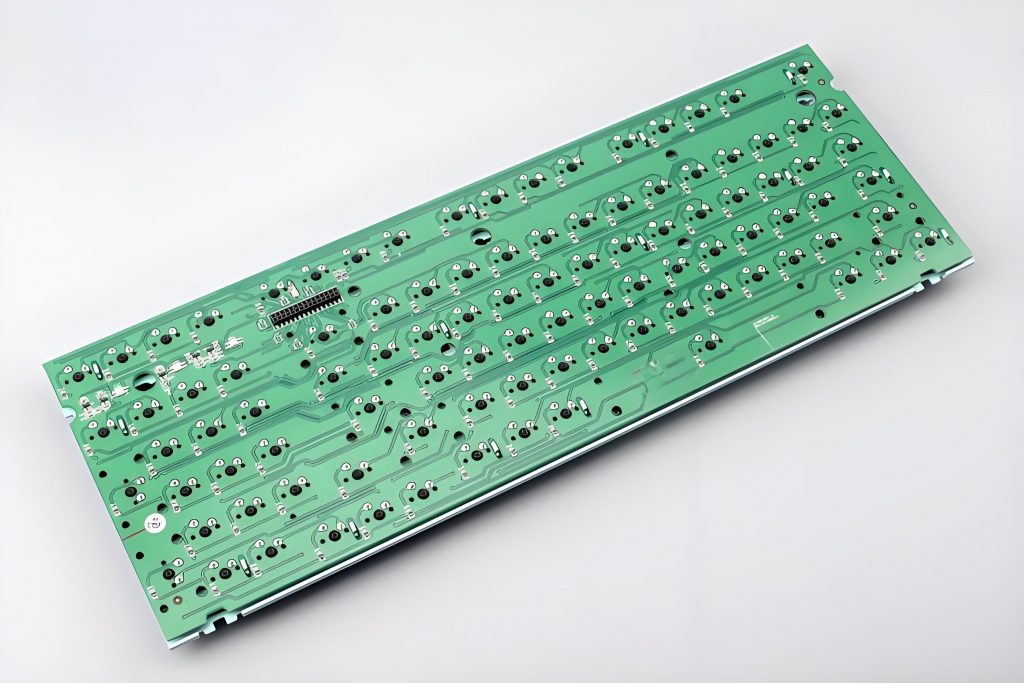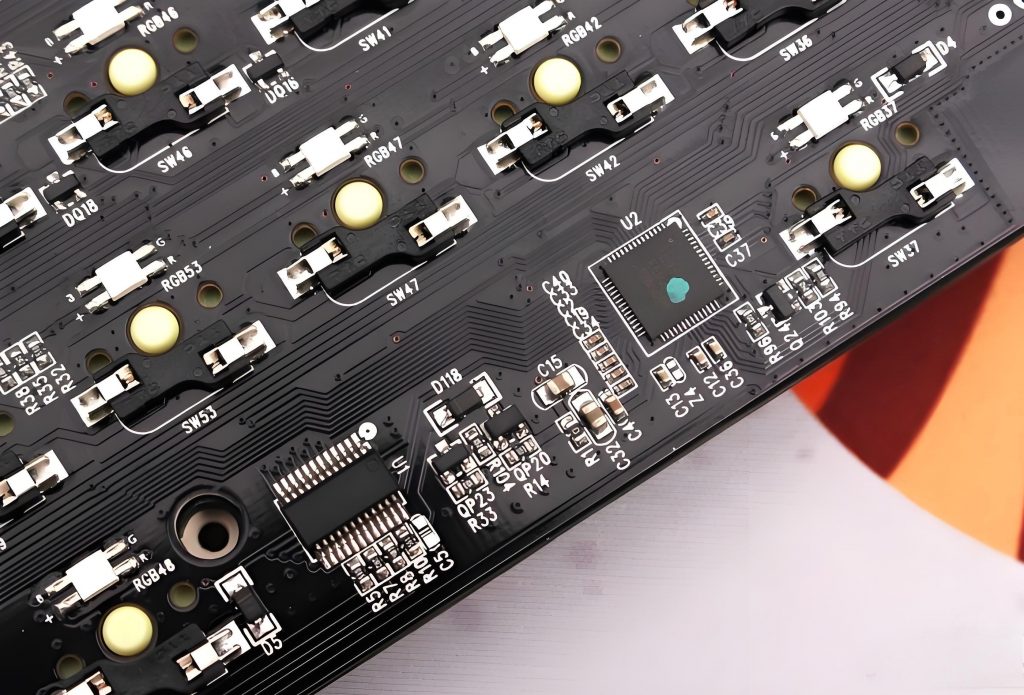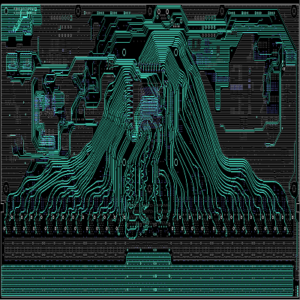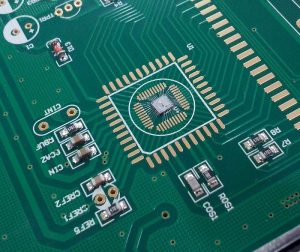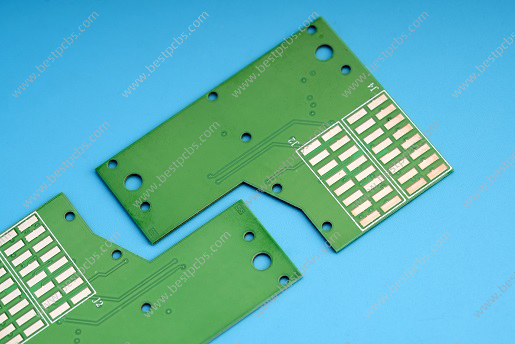Mammoth 75 PCB thickness is typically in the range of 1.2mm to 1.6mm. This thickness range has a significant impact on keyboard performance and user experience. PCBs with a thickness close to 1.6mm have excellent physical stability, can effectively resist external impacts, protect internal circuits, and are not easily deformed during the welding process, laying the foundation for the stable operation of the Mammoth 75 mechanical keyboard.
What are standard PCB layer thicknesses?
Standard PCB layer thickness is usually 0.1mm. According to the standards of the International Electronics Council (IPC), commonly used PCB board thicknesses include 0.4mm, 0.6mm, 0.8mm, 1.0mm, 1.2mm, 1.6mm, 2.0mm, etc. Among them, the thickness of 1.6mm is regarded as a balance point in most cases, which can not only meet the needs of most applications, but also has good stability and reliability.
In addition, the laminated structure design of PCB should follow the principle of symmetry, including the symmetry of dielectric layer, copper foil thickness and pattern distribution. This helps ensure the overall performance and stability of the board.
The thickness of the dielectric layer should be no less than 0.1mm to prevent voltage breakdown. The thickness of the inner layer board (such as layers 1 to 4) can be selected to be 0.1mm. The thickness of copper foil is usually greater than or equal to 0.5oz, and the thickness of the finished copper on the surface is equal to the thickness of the base copper plus 0.5oz. As the number of layers increases, the complexity of signal transmission increases, and appropriate copper foil thickness helps ensure signal quality.
What are the advantages of Mammoth 75 PCB?
The advantages of Mammoth 75 PCB mainly include the following aspects:
- Soft and elastic feel: Mammoth 75 uses a gasket structure and PC positioning plate, making the keyboard inner liner very elastic. You can see obvious deformation by gently pressing any area of ‚Äč‚Äčthe keys, and the feel is soft and elastic with good consistency.
- Dull sound: The use of adsorbable Poron material at the bottom of the PCB makes the sound of the axis duller. Combined with the soft elastic keyboard, the typing sound is crisp without losing depth.
- Detailed processing: The PCB design of Mammoth 75 takes into account detailed processing, such as built-in bottom cotton and sandwich cotton, which further improves the feel and sound adjustment effect.
- Stable structure: Using Gasket structure with aluminum alloy, it achieves the perfect combination of precision craftsmanship and sturdiness and durability.
These advantages make Mammoth 75 PCB outstanding in terms of feel, sound and structural stability, making it suitable for users who pursue a high-quality typing experience.
What is the thickness of mammoth 75 pcb?
Mammoth 75 refers to a mechanical keyboard. Generally, the PCB thickness of mechanical keyboards is usually between 1.2mm-1.6mm.
It usually adopts a compact 75% layout. While retaining the numeric keypad, it reduces the size of the keyboard as much as possible, allowing users to obtain a more convenient operating experience when using it, while also saving desktop space.
This keyboard is generally equipped with a variety of common mechanical shafts to meet the needs of different users for key feel. Keycaps are mostly made of PBT material. This material is wear-resistant and not easy to oil. Even after long-term use, the keycap surface can maintain good texture and clarity, and there will be no key damage caused by frequent finger contact. If the cap characters are worn or the surface is shiny, the service life of the keyboard will be greatly extended.
How does PCB thickness affect performance?
PCB thickness has a significant impact on its performance, mainly reflected in electrical performance, mechanical strength, heat dissipation performance and cost.
- 1. Electrical performance
The thickness of a PCB directly affects the cross-sectional area of ‚Äč‚Äčits conductive layer, thereby affecting the current transmission capability. Thicker PCB boards have a larger conductive cross-sectional area, can withstand higher currents, reduce line impedance, and reduce signal transmission losses.
In high-frequency applications, thinner PCB boards are beneficial to reducing signal transmission losses and reflections. In addition, thicker PCB boards can reduce signal crosstalk and electromagnetic interference and improve signal integrity.
- 2. Mechanical strength
The thickness of a PCB is closely related to its mechanical strength and stiffness. Thicker PCB boards have higher bending stiffness and impact toughness, and can withstand greater mechanical stress and vibration, ensuring the stability and reliability of electronic equipment in harsh environments.
- 3. Heat dissipation performance
The thickness of the PCB also affects its heat dissipation performance. Thicker PCB boards have greater heat capacity and better thermal conductivity, and can more effectively dissipate the heat generated by electronic components, which is especially important in high-power equipment. Thicker copper foil can dissipate heat more effectively and prevent electronic components on the circuit board from failing in high-temperature environments.
- 4. Cost
PCB thickness is also related to cost. Thicker copper foil increases material requirements and manufacturing difficulty, resulting in higher costs. Thicker PCB boards usually require more materials and more complex manufacturing processes, increasing production costs.
When should you use thicker PCBs?
Thicker PCBs should be used in the following situations:
- High current applications: Thicker PCB has a larger conductive cross-sectional area, can withstand higher current, lower line impedance, and reduce signal transmission loss.
- Mechanical strength requirements: Thicker PCBs have higher bending stiffness and impact toughness, and can withstand greater mechanical stress and vibration. This is particularly important in the automotive industry or industrial control systems, as these systems often need to operate stably in harsh environments.
- Heat dissipation requirements: Thicker PCBs have greater heat capacity and better thermal conductivity, which can effectively dissipate heat and improve the thermal stability and reliability of electronic equipment. This is critical for high-power applications such as power modules, amplifiers, etc.
- High-frequency applications: In high-frequency applications, such as radar systems or satellite communications equipment, thicker PCBs can help reduce signal reflections and crosstalk, improving signal integrity.
What is BEST Technology’s PCB process capability?
As a Printed Circuit Board (PCB) supplier in Asia, we strive to be your best partner for specific, advanced, high-precision Printed Circuit Boards including Metal Core PCB (MCPCB) such as Aluminum PCB, COB MCPCB, Copper PCB, thick copper plate, mixed layer, high TG, HDI, high frequency, impedance control board, etc.
We offer not just PCB and MCPCB manufacturing but also include PCB duplication, engineering and process design, component management and sourcing solutions, PCB in-house assembly and full system integration, Surface Mount Technology (SMT).
How many layers of PCB can BEST Technology manufacture?
Multilayer PCB refers to a printed circuit board with more than two copper layers, such as 4 layers, 6 layers, 8 layers, 10 layers, 12 layers, etc. As technology advances, one can put more and more layers of copper on the same board. Currently, we can produce FR4 PCBs with 20-32 layers.
Mammoth 75’s PCB has a unique position and value in the field of mechanical keyboards. From a practical point of view, its precise thickness design takes into account portability and stability, meeting the needs of different users in different scenarios. As a professional PCB manufacturer, BEST Technology controls the manufacturing of PCBs of various thicknesses. Relying on fine craftsmanship and material selection, it meets the requirements for thinness, lightness and high integration of wearable and micro medical devices for mobile phones, tablets, Mammoth 75 keyboards, etc.


